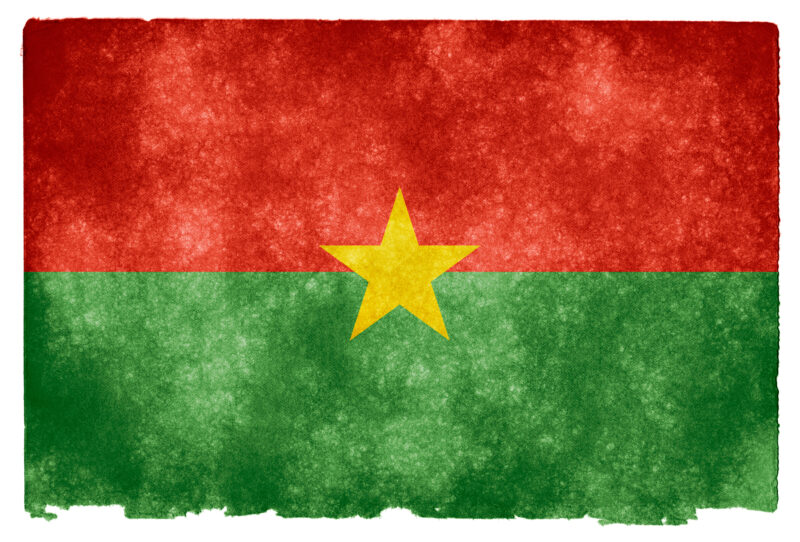On Saturday, June 5th, over 130 people were killed and over 40 others injured in Solhan, Burkina Faso during an overnight attack. Solhan is a village in the Yagha Province of Burkina Faso, near the Niger border. Suspected extremists violently raided and burned homes and the local market whilst carrying out “executions.” The government regards the massacre as the worst in the country’s recent history.
President Roch Kabore condemned the “barbaric” assault and offered his condolences to those affected by the violence. He added that state security forces were searching for the perpetrators and called for unity “against the forces of evil.” The government later declared three days of national mourning as details continued to emerge on Saturday. Those tragically killed were quickly buried, which obscured a concrete figure for fatalities. The current tally rests between 132-160 people.
No group has yet claimed responsibility for the violence. However, West Africa’s Sahel region has been mired by similar attacks perpetrated by militant groups linked to Islamic State and al-Qaida. Since militants captured large parts of northern Mali in 2012 and 2013, fighting has spilled into neighboring regions. This reflects a worsening security crisis that has left many communities across the tri-border area of Mali, Burkina Faso, and Niger displaced and vulnerable to militant aggression. These events also demonstrate the shortcomings of domestic and international policymaking that rely on military intervention to tackle a highly complex crisis in need of a political solution.
UN Secretary-General Antonio Guterres condemned the attack and according to his spokesman, Stephane Dujarric, “He [Guterres]… underscores the urgent need for the international community to redouble support to the Member States in the fight against violent extremism and its unacceptable human toll.” However, French President Emmanuel Macron recently announced an end to Operation Barkhane. The military mission saw the deployment of over 5,000 French troops to the Sahel in 2013 to assist West African nations in the fight against terrorism. President Macron offered few details on the nature of the mission that would replace it.
Furthermore, whilst the current situation in the Sahel was on the agenda for the G7 summit, no definitive commitments emerged in the leaders’ communiqué. Raising concerns that this deepening humanitarian and political crisis is being overlooked by world leaders.
Analysts have pointed out that violence in the Sahel has worsened despite the presence of a 13,000-strong UN peacekeeping mission coupled with domestic and French military supports. In a recent Guardian report, it was noted that fatalities in Burkina Faso rose from 200 in 2018 to almost 2,000 in 2020. Hence, the attack in Solhan was not an isolated case. It is imperative that governments work towards a political solution to protect civilians from the violence that is expected to continue to escalate. Heni Nsaibia, a senior researcher at the Armed Conflict Location and Event Data Project, explains that similar events are taking place in Niger, with the death toll surpassing “any previous year” within the first five months of 2021.
In March 2021, Dr. Marc-Antoine Pérouse de Montclos reported for Chatham House that there is an urgent need to pivot away from military cooperation towards a political solution for the Sahel. He argues that this could be accomplished by supporting long-term state-building initiatives in the region. Pérouse de Montclos further stated that “the solution to insurgency in the Western Sahel lies in human security and better governance, not military action… the dominant narrative of a global jihadi threat has overshadowed the key role played by military nepotism, prevarication, and indiscipline in generating and perpetuating conflict in countries of the Western Sahel.”
Violence in Burkina Faso has displaced more than one million people since 2019, and the country currently hosts around 20,000 refugees from neighboring Mali. As the Sahel is a desert region and is the driest and hottest part of Burkina Faso, militant aggression has generated a humanitarian crisis with as many as 628,000 people left with little-to-no access to water, hygiene, and sanitation, and are at a heightened risk of disease. The health risks, as well as the logistical challenges that come with hosting almost a third of the country’s population highlight the need for an immediate and rapid solution to reduce the human cost of the ongoing violence.
- The Taliban Continue to Make Gains across Afghanistan - July 19, 2021
- Reports Of Starvation In North Korea As Food Insecurity Mounts - July 16, 2021
- The Threat To Global Health Following U.K. Foreign Aid Cuts - June 24, 2021


